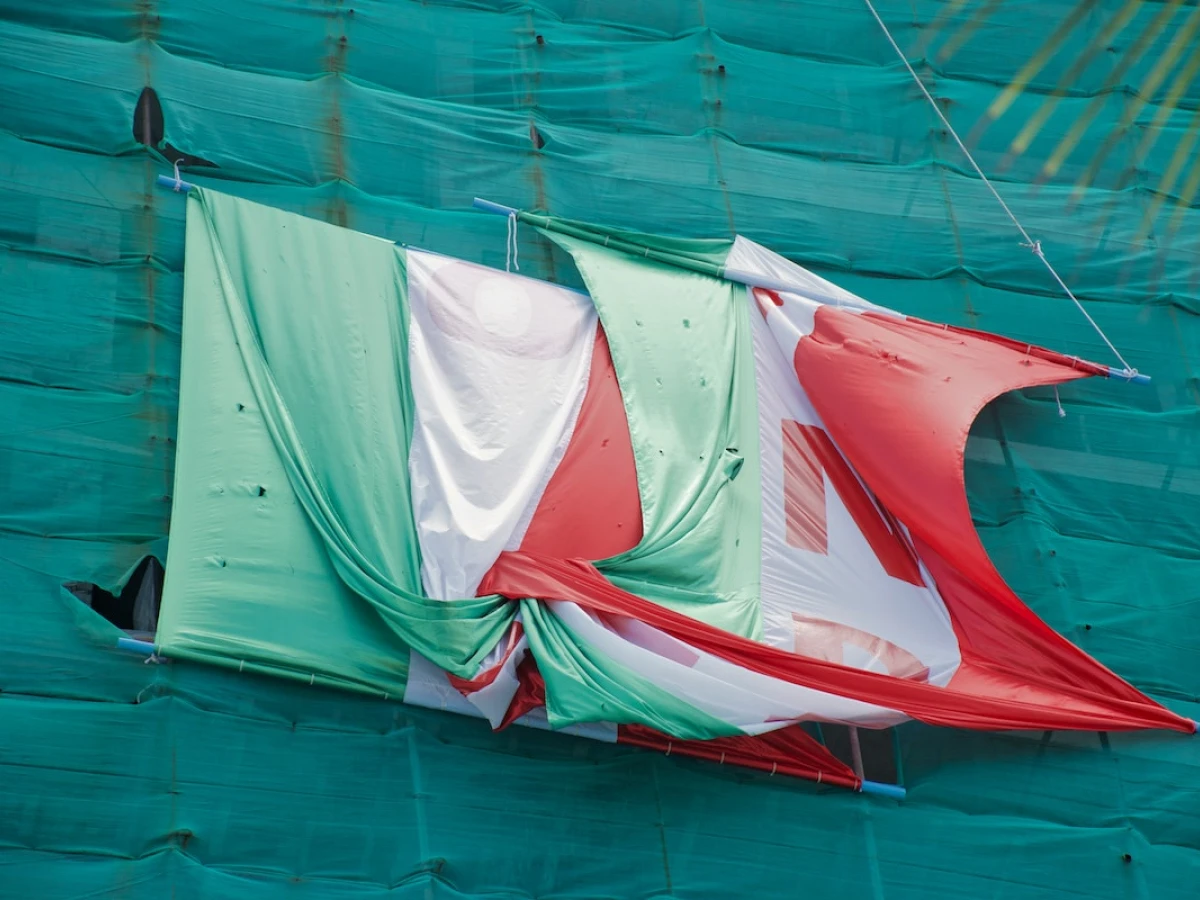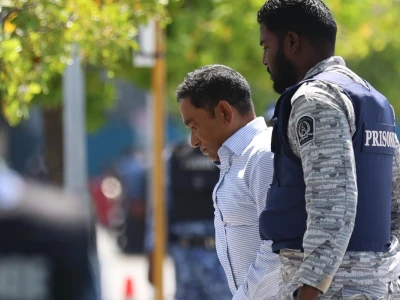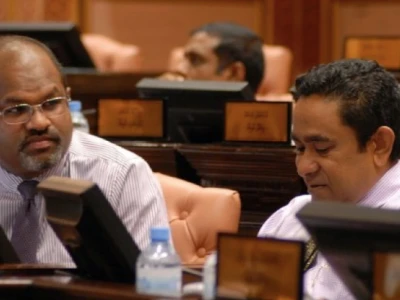
'India Out' banner: Civil Court dismisses Yameen's case
After the High Court rule, the opposition PPM/PNC coalition approached the police, but the police did not hand over the banner.
Top Stories
By
Shahudha Mohamed
Civil Court on Wednesday dismissed former president Abdulla Yameen's Abdul Gayoom’s petition seeking to quash the police directive issued to him to remove ab 'India Out' banner put up outside his residence.
The court ruled that the case could not proceed as it was a matter already decided by the High Court earlier and the lower courts had to abide by the decisions of the higher courts.
In April, a huge banner with 'India Out' emblazoned on it was hung from the terrace, all the way down the building of H. Dhoovehi, the residence of opposition PPM-PNC coalition leader Yameen. 'India Out' is the theme of the opposition's campaign to drive out Indian military personnel stationed in the Maldives.
-
Banners were put up on 19 April; police asked Yameen to remove them on 20 April.
-
When Yameen did not remove the banner, the police had entered Yameen's house on 21 April on the orders of the criminal court and removed it.
-
Yameen filed a case in the High Court against the police, alleging that the banner was taken down using an illegal court order.
-
The High Court held that the criminal court search order issued on police request to remove the 'India Out' banner was illegal; it was set aside.
-
After the High Court rule, the opposition PPM/PNC coalition approached the police, but the police did not hand over the banner.
Yameen filed a petition in the Civil Court against the state requesting:
-
To uphold that, putting up a banner saying 'India Out' at Yameen's personal residence is a constitutional right and personal liberty.
-
To uphold that the installation of such banners is not prohibited in Islamic law or any law in the country.
-
To uphold that the installation of the banner is permissible under freedom of expression and does not violate the tenets of Islam.
-
To declare that it is not an act that can destroy or hinder public peace.
The state has sought a directive from the civil court to declare that the matter cannot be accepted or taken up in a Civil Court.
-
The matter is neither subject to jurisdiction in the Civil Court nor is the Attorney General liable
-
The High Court has laid down the basic premises on the case; this is not a case that the civil court can proceed with
Taking into account the arguments of both the parties, the Civil Court concluded that since the High Court had taken a decision on 20 April stating that it could not take any further decision that would affect the high court's decision. Therefore, the Civil Court ruled that the case could not proceed and dismissed it.




